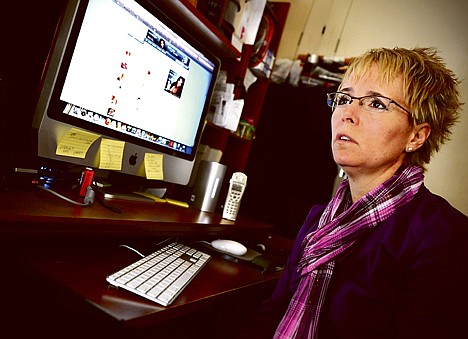Baby boomers fear outliving Medicare
Jennifer Agiesta | Hagadone News Network | UPDATED 15 years, 1 month AGO
WASHINGTON - The first baby boomers will be old enough to qualify for Medicare Jan. 1, and many fear the program's obituary will be written before their own.
A new Associated Press-GfK poll finds that baby boomers believe by a ratio of 2-to-1 they won't be able to rely on the giant health insurance plan throughout their retirement.
The boomers took a running dive into adolescence and went on to redefine work and family, but getting old is making them nervous.
Now, 43 percent say they don't expect to be able to depend on Medicare forever, while only 20 percent think their Medicare is secure. The rest have mixed feelings.
Yet the survey also shows a surprising willingness among adults of all ages to sacrifice to preserve Medicare benefits that most Americans say they deserve after years of paying taxes into the system at work.
Take the contentious issue of Medicare's eligibility age, fixed at 65, while the qualifying age for Social Security is rising gradually to 67.
Initially, 63 percent of boomers in the poll dismissed the idea of raising the eligibility age to keep Medicare afloat financially. But when the survey forced them to choose between raising the age or cutting benefits, 59 percent said raise the age and keep the benefits.
"I don't mind the fact that people may have to work a little longer," said Lynn Barlow, 60, a real estate agent who lives outside Atlanta. Especially if there's time to plan, laboring a few extra years allows people to save more for retirement.
Bring up benefit cuts and Barlow isn't nearly as accommodating. "I started working when I was 16 and I expect a benefit after putting into it for so many years," she said.
As Medicare reaches a historic threshold, the poll also found differences by age, gender and income among baby boomers. For example, baby boom women, who can expect to live longer than both their mothers and their husbands, are much more pessimistic than men about the program's future.
Medicare is a middle-class bulwark against the ravages of illness in old age. It covers 46 million elderly and disabled people at an annual cost of about $500 billion. But the high price of American-style medicine, stressing intensive treatment and the latest innovations, is already straining program finances. Add the number of baby boomers, more than 70 million born between 1946 and 1964, and Medicare's fiscal foundation starts to shake.
Here's the math: when the last of the boomers reaches age 65 in about two decades, Medicare will be covering more than 80 million people. At the same time, the ratio of workers paying taxes to support the program will have plunged from 3.5 for each person receiving benefits currently, to 2.3.
"The 800-pound gorilla is eating like mad and growing to 1,200 pounds," said economist Eugene Steuerle of the Urban Institute, warning about the imbalance. "The switch from worker to retiree status has implications for everything."
The government can't balance its books without dealing with health care costs, and Medicare is in the middle. Some leading Republicans and a few Democrats have called for phasing out the program and instead giving each retiree a fixed payment - or voucher -to help them buy private medical insurance of their choice. The poll found doubts about the idea, and a generational debate.
Overall, a narrow majority (51 percent) of Americans opposed the voucher plan. But those born after 1980 favored it by 47 percent to 41 percent, while seniors opposed it 4-to-1. A majority of boomers were also opposed, with 43 percent strongly objecting.
However, younger boomers like RoxAnne Christley of Roanoke, Va., were more likely to be favorable.
"I think that's a possibility if it brings choices and competition," said Christley, 47. "We don't need to stimulate the government; we need to stimulate the economy. A lot of people have different choices when it comes to medical coverage, and I see nothing wrong with that at all." Christley is self-employed, counseling new mothers on breast feeding.
Changes that don't involve a full-scale re-engineering of Medicare tended to draw more support in the poll, especially when the survey forced people to choose between giving up benefits or making some other kind of sacrifice.
For example, 61 percent of Americans overall favored raising Medicare taxes to avoid a cut in benefits. The current payroll tax is 2.9 percent on wages, evenly divided between workers and their employers. The new health care law added a surcharge of 0.9 percent on earnings over $200,000 for individuals and $250,000 for couples filing jointly.
ARTICLES BY JENNIFER AGIESTA
Election indicators suggest GOP edge
Poll: Obama health care overhaul going poorly


